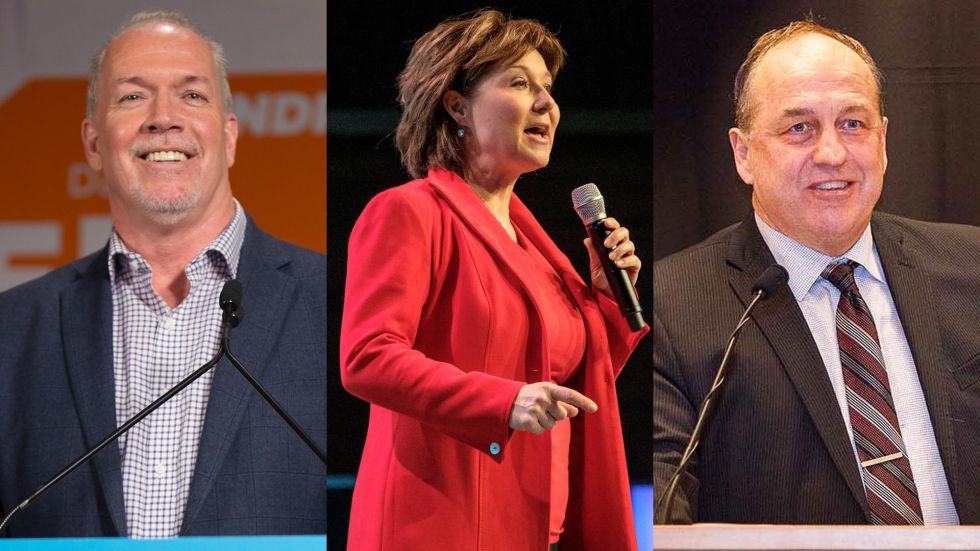The article below was featured in the April 10, 2017 issue of the Huffington Post.
By Mike Klassen
With so many issues commanding headlines at the start of the provincial election campaign, it is easy to understand how caring for frail and elderly citizens can drop off the public’s radar. For many British Columbians, however, there can be no more important issue than the availability of care for their elderly loved one.

In fact, studies show that three-out-of-ten adults in our province identify as being a part of the so-called “Sandwich Generation”. This is defined as those of us who are responsible for the needs of not only children or young adults living at home, but those of an elderly parent.
A poll conducted by Insights West last January for BC Care Providers Association (BCCPA) revealed just how many members of the Sandwich Generation are juggling schedules between kids and parents, or even taking time off work. The survey results say over half of those in the Sandwich Generation are struggling to keep up.
This provides some context as to why it is imperative that all of B.C.’s political parties – BC Greens, BC NDP, or BC Liberals – must have a robust plan to address the needs of our aging population.
On March 9th, B.C.’s now outgoing Minister of Health Terry Lake announced a commitment of $500 million in new investments for seniors care over the next four years. In addition to the new dollars, the B.C. government’s Action Plan includes a phased-in overall increase of $200 million during over those four years, for a total of $700 million.
BCCPA, as well as B.C.’s Seniors Advocate, the Hospital Employees Union, and multiple other individuals and organizations all lauded the increased funding.
It should be noted that new investments in seniors’ care were in part a result of funding from the federal government. On February 17th, Health Minister Jane Philpott made a whistle stop in Richmond to announce that she and Lake had signed a new health funding agreement, which earmarked $785.7 million toward home and community care for seniors over the next ten years.
These are a lot of big numbers. So what do they all mean?
First of all, gaps in the system can now be addressed. The lack of sufficient numbers of care aides and nurses is a critical piece that needs to be dealt with, so the Health Ministry’s action plan recommends taking immediate steps to recruit over 1,500 care workers.
This includes care aides, licensed practical nurses, RNs, occupational therapists, and physiotherapists to meet the needs of an aging population.
These funds also translate into a significant province-wide increase in the average amount of care our seniors will receive per day. B.C.’s Seniors Advocate Isobel Mackenzie has identified the minimum number of “direct care hours” (DCH) those in care must receive is 3.36 hours per day.
Her report released in January concluded that a large number of publicly-funded care providers were falling short of that 3.36 DCH benchmark. That shortfall was a direct result of the funding B.C.’s Health Authorities allotted to each care home, and not (as some surmised) because privately-operated providers were delivering less care and somehow pocketing the difference.
Mackenzie’s calculation is the new investments will result in 7,000 additional care hours across B.C. per day, or around 3 million additional hours annually.
Increasing direct care hours will have real human consequences. Simple examples for seniors include more timely trips to the bathroom, more frequent baths, or having enough staff to assist someone to walk to the dining room rather than riding in a wheelchair.
As a result of the new funding announcement, the BC Care Providers Association are now stewards of a $10 million health and safety fund. This fund will provide much-needed equipment such as new wheelchairs and ceiling lifts – which any publicly-funded care provider can access.
The work of improving the lives of B.C.’s elderly citizens is continuously evolving. For example, BCCPA’s recently announced Assisted Living Tenancy Task Force will seek ways to make sure there is a dependable supply of subsidized assisted living housing for those who need it.
We will know who forms the next B.C. government after May 9th, but before Election Day we hope to see how they plan to support our seniors.
This Op-ed has been published in Huffington Post on April 10, 2017. View it here.




